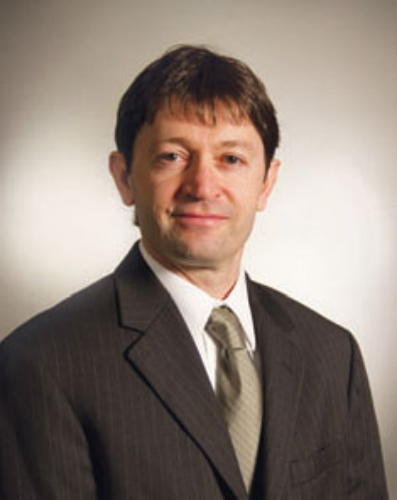Aug 16, 2012
Major Grant Advances DePaul Professor’s Research in Depression Among Minority Youth
Major Grant Advances DePaul Professor’s Research in Depression Among Minority Youth
The Annie E. Casey Foundation has awarded Antonio Polo a $458,000 grant to further his work with African- American and Latino middle school students who suffer from depression.
Polo, an associate professor in the Department of Psychology, will use the grant to deliver the Act & Adapt Program in Chicago Public Schools for the next four years, starting this fall.
Act & Adapt is a modular program that teaches eight core skills. The “act” portion teaches four primary control skills that help youth with depression-related problems tackle stressors that affect their mood. The “adapt” portion teaches four secondary control skills to deal with adverse circumstances that can’t be changed by adjusting perceptions and expectations.
“The grant targets African-American and Latino kids because those two groups have a high risk for depression or are much less likely to receive services in traditional mental health clinics,” says Polo, who co-authored the evidence-based program. “We want kids to identify techniques, strategies and coping skills that they can utilize when faced with stress so they can have more control over their mood and improve their emotional state when they’re feeling down.”
Polo’s research “addresses the very heart of the Vincentian mission—serving the underserved,” College of Science and Health interim dean Jerry Cleland says. “This innovative project has the potential to greatly impact the way we understand and address emotional disorders in this country.”
Polo holds a joint appointment with the Department of Psychology and DePaul Family and Community Services (FCS). He has spent 15 years providing mental health services to students in urban schools, beginning his work in Los Angeles while a graduate student at the University of California, Los Angeles. His approach includes reaching out to families as well as children. “Depression is less likely to be noticed by adults; therefore, children may be suffering from signs of depression without adults [in their life] seeking help.”
Act & Adapt has been offered in other cities but never in Chicago. Staff members and doctoral students from FCS and other local agencies will deliver the program, and Polo will supervise. Polo and his research team have identified several Chicago schools that are interested in working with the program. All of the elementary and middle schools enroll students of low-income ethnic minority backgrounds—the target client population for the grant.
Year one of the program will focus on developing and incorporating new modules. In the subsequent three years, FCS will deliver the program to middle school students and conduct assessments every six months. Evaluations will determine how effective the program is in reducing depression and improving academic achievement, Polo says.
The grant also will help broaden the program by developing stronger parent involvement and using technology to increase the likelihood that parents learn about the program and kids use the skills they are taught, Polo explains. Some of the grant will go toward developing a website in the first year that is designed to further student learning.
“Very few programs target depression among low-income minority youth,” says Yanique Redwood, senior associate for health and mental health at the Casey Foundation. “This program that Antonio is developing fits really nicely into our mission to increase the supply of evidence-based programs. There’s a lot of sustainability built into the way he’s developing the program.”
This story originally appeared in the College of Science and Health's "Scientia."

Antonio Polo
